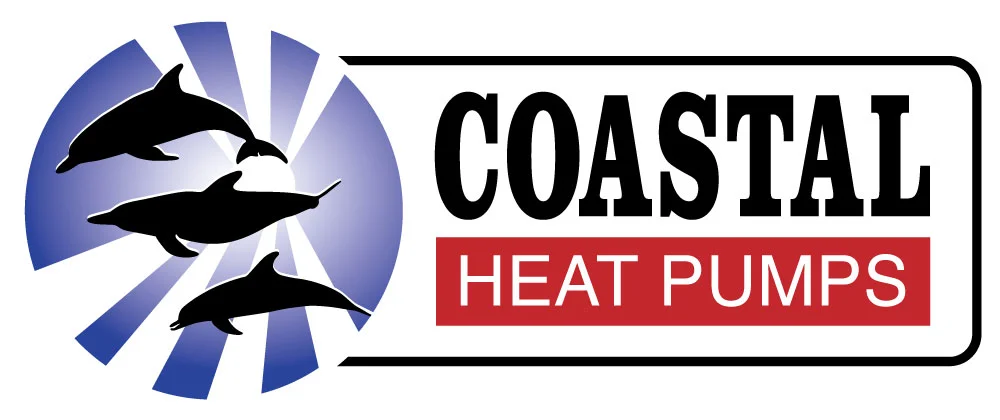
How Can a Heat Pump Improve Indoor Air Quality?
Indoor air quality plays an important role in your home’s health and comfort. Filtered air removes pollutants and allergens, while fresh air circulation ensures the home feels breezy and comfortable all year long. When deciding on the right HVAC system for your next home upgrade, air quality is naturally one of your primary considerations.
Heat pumps are not only among the most energy-efficient heating and cooling solutions for your home, but they can also significantly improve your air quality compared to older HVAC designs. Heat pumps can provide advanced air filtration, clean heating, humidity control, and refreshing home ventilation to maintain high indoor air quality throughout your home.
How Heat Pumps Work
When exploring how heat pumps improve air quality, let’s start with how a heat pump works. A heat pump uses a coolant fluid system to transfer heat either into or out of your house. In the summer, coolant is used to absorb heat from inside the house, cooling coils that are then used to cool the air. Extra heat is released through the outdoor unit and then the cycle starts over.
In the winter, heat is extracted through the condenser and carried indoors to warm the coils and the air that cycles through your home. It’s a simple, reversible system that can keep your home comfortable while providing clean air and home ventilation all year long.
Clean Air Heating System
One of the greatest advantages of a heat pump system is the pollutant-free heating. Heat pumps reverse the classic AC system of coolant fluid and coils to generate heat in the winter. The heat is generated inside the coils and used to warm air that circulates through your home. Compared to the many homes that rely on furnaces that burn fuel, heat pumps do not need any fuel other than electricity to run the system. Therefore, heating does not generate any pollutants providing a cleaner solution both for your home’s indoor air quality and your overall carbon footprint.
Advanced Filtration Systems
Air filtration is an essential part of heat pump design, and your heat pump can be installed with an advanced air filtration system. It is ideal to have a filter with a MERV rating between 6 to7 in a heat pump system. This provides air filtration and ensures adequate airflow for the system to operate efficiently. Advanced filtration options can be customized to your needs and may include UV, hepa or carbon filters.
Heat pump filters can potentially remove:
- Dust
- Airborne particles
- Pollen and allergens
- Mold spores
- Bacteria
The grade of the filter determines the size of particles and microbiology can be removed from the air. Higher-grade filters can remove even the smallest air pollutants as your heat pump cycles fresh air through your home.
UV Air Purification
Some heat pumps can incorporate UV air purification in addition to one or more layers of air filters. UV light is capable of neutralizing airborne microbiology and pathogens that may be too small for your air filter layers to clear.
UV air purification protect you from airborne:
- Bacteria
- Mold spores
- Viruses
Incorporating advanced air filtration into your heat pump system can ensure that your air is always clear of pollutants and pathogens that could put your family’s health at risk.
Reliable Humidity Control
Many homes struggle with high humidity in the summer, and heat pumps are a natural solution. During the cooling cycle, heat pumps automatically remove excess moisture from the air through an efficient process of condensation and is collected and carried away through the condensate line. This ensures that the air heat pumps cycle through your home is less humid and more comfortable.
Heat pumps are also superior to independent dehumidifiers because you do not have to empty the tank after a few hours of function. The drain line carries all the water from the reduced humidity outdoors to a prepared drip space.
Fresh Air Ventilation
A centrally ducted heat pump also ensures fresh air will cycle through your home with efficient ventilation. The blower fan of your heat pump is responsible for pushing clean, filtered, and temperature-conditioned air to every vent. This ensures that every room of your house is evenly heated or cooled with a constant cycle of fresh air.
A fresh air intake can also be installed to ensure that outside air is brought indoors, then filtered and conditioned before it is circulated through your home. Combined, these features can help to significantly improve your indoor air quality and maintain high air quality all year long.
Exploring Heat Pump Air Quality and Energy Efficiency
Heat pumps are an energy-efficient solution heating and cooling your entire home. They can also provide excellent indoor air quality through a combination of clean heating, advanced air filtration, humidity control, and house-wide ventilation. Together, these systems will remove pollutants and keep the air in your home cycling in healthy and fresh air.
If you are looking for a new HVAC solution that will provide affordable power bills, high indoor air quality, and a low carbon footprint, a heat pump may be the perfect choice for your home. Book an in-home estimate from one of our heat pump experts today.
